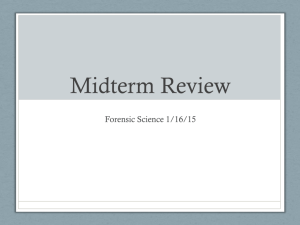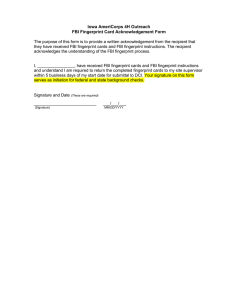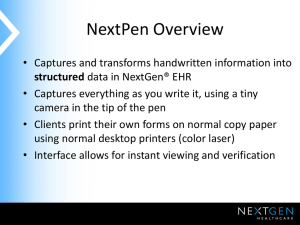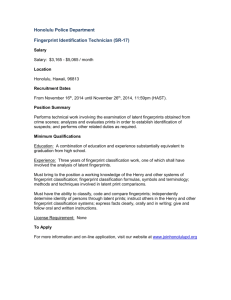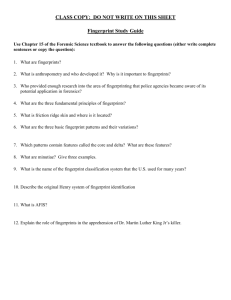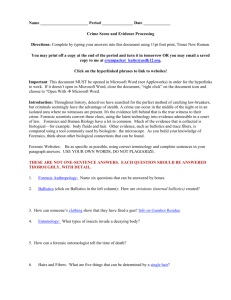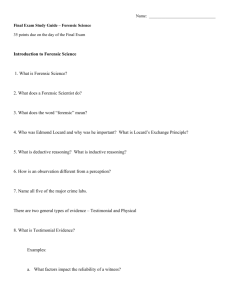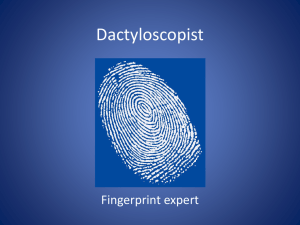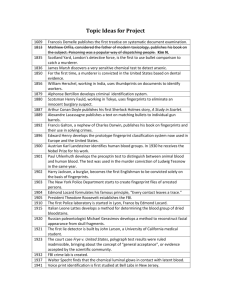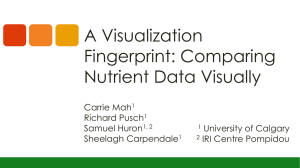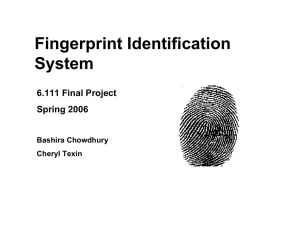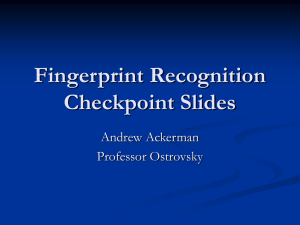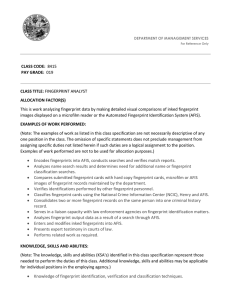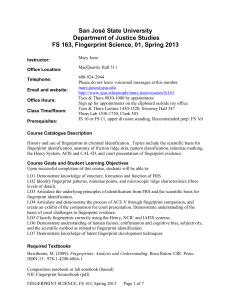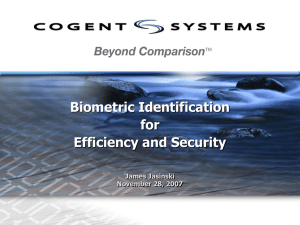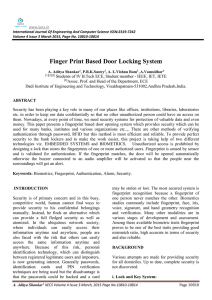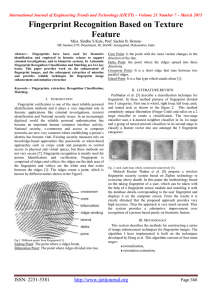Forensic Databases
advertisement
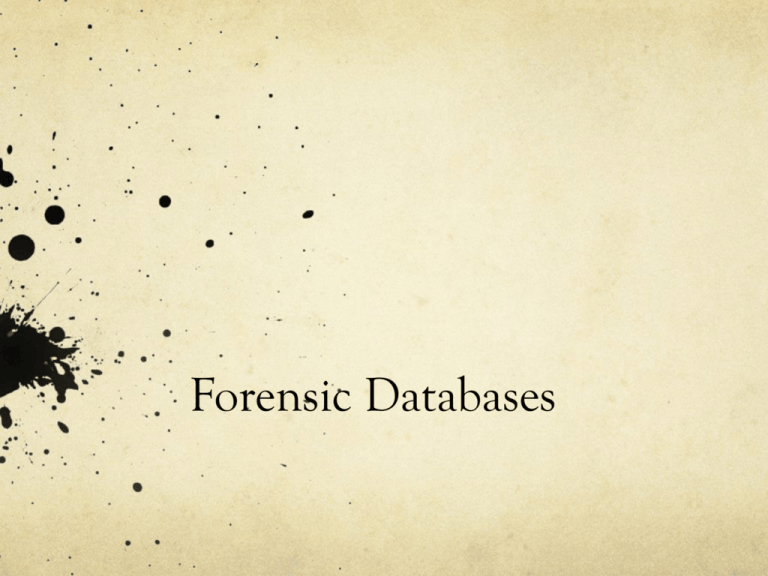
Forensic Databases What is a database? A collection of data that share common attributes, and can be used to match or compare to a submitted item Databases are searchable on a number of identifying points Example: Fingerprint characteristis IAFIS The Integrated Automated Fingerprint Identification System Maintained by the FBI Contains nearly 50 million fingerprint images Free Fingerprint DB Verifinger Can be used to build your own database of prints (limited to 10 prints) NOT part of the FBI master database Other Fingerprint DBs Interpol Local – by country Limitations on Keeping Records Generally, can collect and keep for ALL felonies Minors may not, depending on the country, be included in that country’s DB In US, generally have to apply to have fingerprints removed from record if adjudged innocent FBI DNA Database Combined DNA Index System (CODIS) Allows federal, state and local crime labs to exchange and compare DNA profiles. Collected by state Felony sexual offenses Other crimes, depending on state statutes Can include children Family Connections A database may reveal that someone is related to the actual suspect For example, a brother or another blood relative The law is not consistent on how it treats the nearmatches – are they permitted to use the presence of relatives to search for suspects? National Integrated Ballistics Information Network NIBIN Maintained by Bureau of Alcohol, Tobacco, Firearms, and Explosives (ATF) Does NOT match to a definite gun Provides a list of POSSIBLE choices, that will be verified by a professional examiner to compare with As of 2007, no crime solved with assistance of ballistics DB International Forensic Automotive Paint Data Query PDQ Contains chemical and color information on automotive paints. Maintained by RCMP (Mounties) of Canada Used primarily for hit & run investigation Shoe Prints SICAR (Shoeprint Image Capture & Retrieval) Commercially available database Solemate Other Databases Use the Pearltrees list Pearltrees Using Comparisons in Forensic Anthropology Examine the handout (Which Pelvis is It?) Work in pairs to determine the gender of each pelvis Justify your results on paper – 1 submitted per team Use the Product Rule Case A Case B Case C FGA 24,24 – 3.6 % vWA 14, 19 – 6.2 % CSF1PO 9.10 – 11.2 % Th01 6,8 – 8.1 % D21S11 30,30 – 3.9 % D185S51 14,17 – 2.8 % D165539 11,12 – 8.9 % D13S317 12,12 – 8.5 % D8S1179 17,18 – 6.7 % The above are 3 possible combinations of DNA characteristics that may be found in a genetic profile. Rank from most common to least common.
